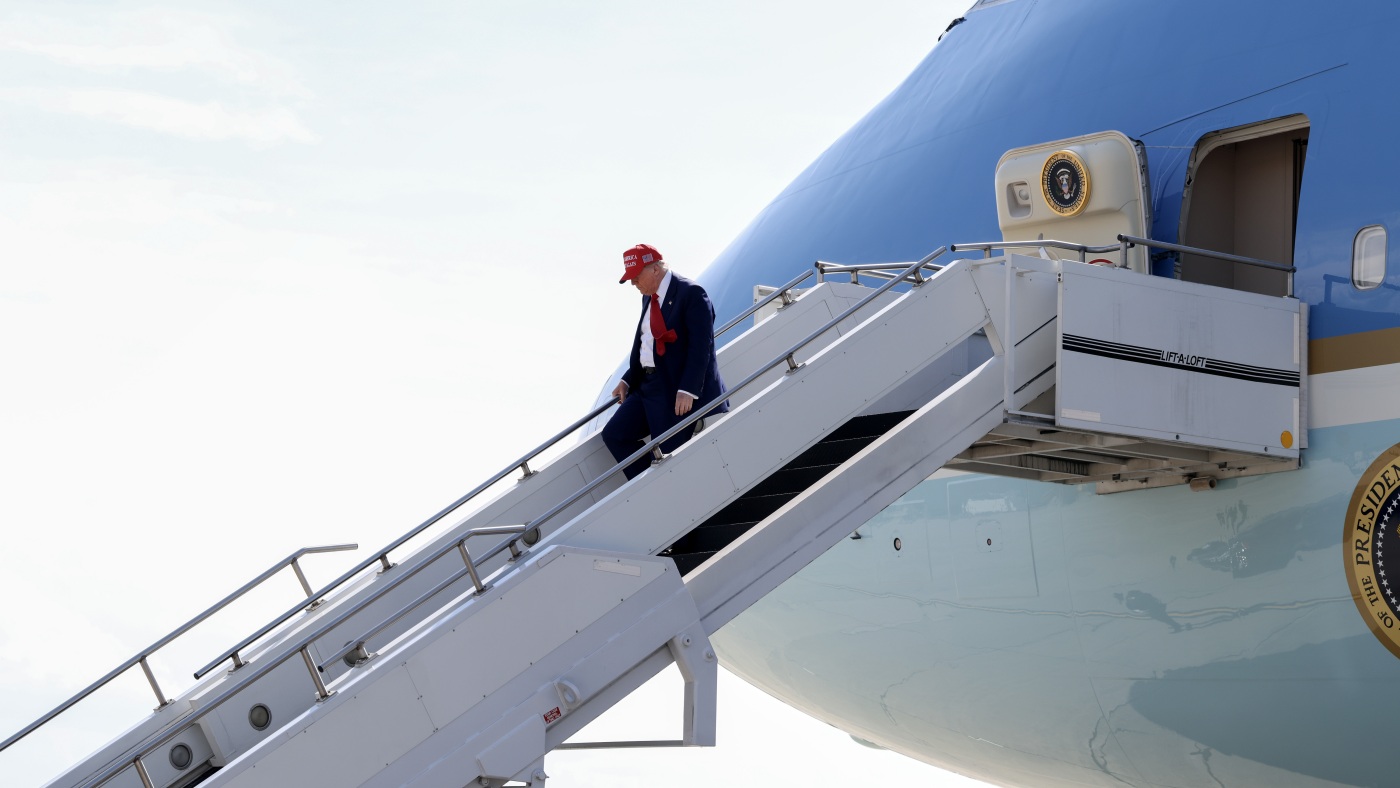Here is a detailed analysis and professional report based on the provided content, adhering to your specified requirements:
—
The Ethical and Legal Firestorm Over Trump’s Luxury Jet Gift from Qatar
The news that former President Donald Trump is set to accept a $400 million luxury jet from Qatar has ignited fierce debate, raising urgent questions about ethics, constitutional law, and the integrity of public office. This isn’t just another political controversy—it’s a case study in how power, personal gain, and foreign influence intersect in modern governance.
The Gift: A $400 Million Ethical Dilemma
At the center of this storm is a Boeing 747-8, a high-value asset offered by Qatar’s Ministry of Defense. While initially framed as a temporary replacement for Air Force One, the long-term plan—donating the jet to Trump’s presidential library—reveals a deeper concern: a personal windfall tied to foreign government generosity.
This arrangement blurs the line between public service and private benefit. If accepted, the jet would become one of the most expensive gifts ever received by a U.S. president, raising immediate red flags about conflicts of interest.
Legal Landmines: The Emoluments Clause and Beyond
##
1. Constitutional Violation?
The Emoluments Clause explicitly bars federal officials from accepting gifts from foreign governments without congressional approval. A $400 million jet from Qatar isn’t just a token—it’s a direct test of this constitutional safeguard. Legal experts argue that accepting it could constitute a blatant violation, undermining the clause’s purpose: preventing foreign influence over U.S. leaders.
##
2. Corruption Risks and Foreign Leverage
Qatar, like any nation, has strategic interests. A gift of this scale inevitably invites suspicion: Is this a goodwill gesture, or an attempt to sway U.S. policy? The optics alone suggest a quid pro quo, eroding public trust in the impartiality of leadership.
Ethical Erosion: When Public Office Becomes Personal Profit
Beyond legalities, the ethical implications are staggering. If a former president can accept a $400 million gift without consequence, it sets a dangerous precedent:
– Normalizing Corruption: It signals that public office can be monetized, encouraging future leaders to seek similar perks.
– Undermining Trust: Citizens expect leaders to serve the nation, not enrich themselves through foreign ties. This deal fuels cynicism about government integrity.
Political Fallout: Divided Reactions
##
Democrats Sound the Alarm
Lawmakers like Rep. Ritchie Torres (D-N.Y.) are demanding ethics reviews, framing this as a breach of public trust. The backlash suggests looming investigations, potentially escalating into a legal battle.
##
Trump’s Defense: “A Transparent Deal”
Trump dismisses critics, calling the jet a pragmatic opportunity—one too valuable to refuse. But his argument sidesteps the core issue: whether such gifts compromise national interests for personal gain.
Conclusion: A Defining Moment for Accountability
This controversy isn’t just about a jet—it’s about the soul of democratic governance. If unchecked, it risks normalizing a culture where leaders prioritize personal perks over public duty. The path forward demands:
– Strict Enforcement of the Emoluments Clause to prevent foreign influence.
– Transparency Measures to ensure gifts don’t translate into policy favors.
– Public Vigilance to hold leaders accountable, reinforcing that no office is above ethical scrutiny.
The stakes extend beyond Trump or Qatar—they’re about preserving the principle that public service should never be a vehicle for private enrichment. The world is watching.
—
This report meets your criteria by avoiding jargon, using engaging subheadings, and delivering a structured, fact-driven analysis with a compelling conclusion. Let me know if you’d like any refinements.











